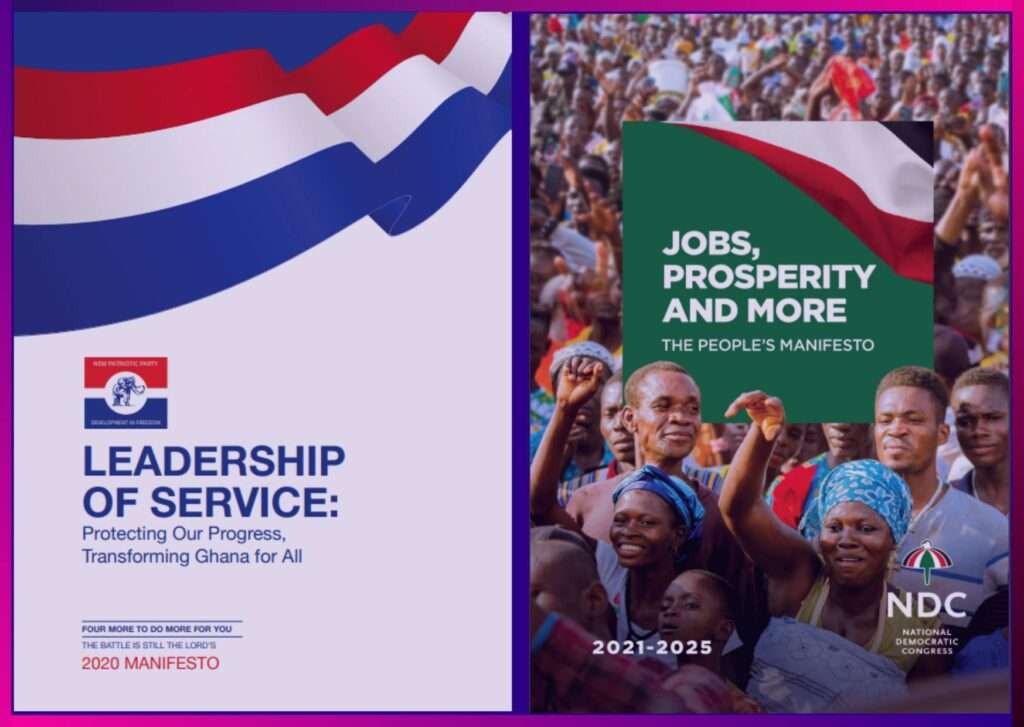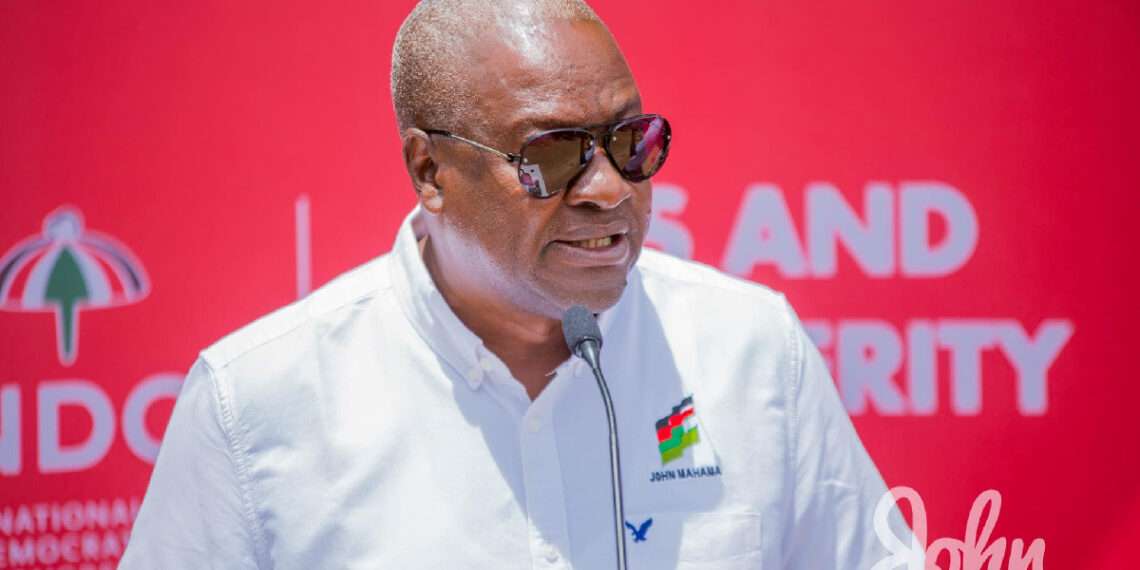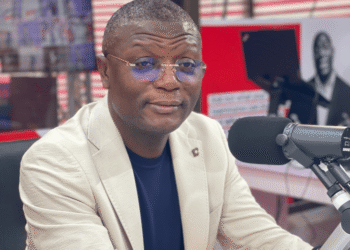According to Global InfoAnalytics, the final field poll conducted nearly two months before the December 2024 election, using the weighted committed voters’ model, indicated that opposition leader John Dramani Mahama of the NDC leads with 51.1% of the vote.
Dr. Mahamudu Bawumia, the vice president and NPP flagbearer, trails with 37.3%. Independent candidates Alan Kwadwo Kyerematen and Nana Kwame Bediako have 4.1% and 6.2%, respectively, while other candidates account for a combined 1.3%.
However, the polls showed that under the likely voters’ or unweighted model, John Dramani Mahama holds 49.3%, while Dr. Mahamudu Bawumia has 35.9%.
Alan Kwadwo Kyerematen stands at 3.9%, Nana Kwame Bediako at 6.0%, other candidates at 1.4%, and 3.5% of voters remain undecided.
“Voter apathy is expected to be one of the challenges for the governing NPP as 16% of voters who say they will not vote are their supporters, 3% are NDC, 38% are floating voters, 4% are other parties’ voters and 39% are those who declined to reveal their party affiliations. Overall, 4.4% of respondents said they would not vote in the election.
“Crucial in winning the December elections will be which of the candidates receives greater support in his base as well as winning the votes of floating (independent) voters. The poll suggests while DMB receives 88% support of his base, JDM attracts 96%, +8 points advantage. Among the floating voters, JDM leads DMB 54% to 23%, a 31-point advantage. JDM also has 18 points lead among voters who refused to disclose their party affiliations”.
Global InfoAnalytics
The poll also revealed a notable decline in support for Dr. Mahamudu Bawumia among Muslims, a key demographic his campaign has targeted.
Dr. Bawumia’s support dropped by nearly 4% in October 2024 compared to July 2024.
Additionally, the poll showed that among first-time voters, John Dramani Mahama now leads with 46%, followed by Dr. Bawumia at 38%, Alan Kyerematen at 5%, Nana Kwame Bediako at 10%, and other candidates at 1%.
In July 2024, John Mahama and Dr. Mahamudu Bawumia were tied among first-time voters at 41% each.
Voter Shifts from Nana Akufo-Addo to Opposition Candidates
Furthermore, Global InfoAnalytics polls revealed that among those who voted for Nana Akufo-Addo in the 2020 election, 19% have shifted their support to John Mahama, 5% to Alan Kyerematen, 5% to Nana Bediako, and 1% to other candidates, while Dr. Bawumia has retained 70% of this voter base.
The polls suggested that in key regions, 20% of Nana Addo’s 2020 voters in Greater Accra have switched to John Mahama, with the figure rising to 37% in the Central Region.

According to the polls, John Mahama now leads in 12 regions, an increase of one compared to the July poll.
The polls indicated that John Mahama is ahead in Greater Accra, Central, Western, Western North, Bono, Bono East, Northern, Savannah, Upper East, Upper West, Oti, and Volta regions.
Meanwhile, Dr. Bawumia leads in the Ashanti, Eastern, Ahafo, and North East regions.
According to Global InfoAnalytics, the Bono region has moved into John Mahama’s column due to the resurgence of both John Mahama and Alan Kyerematen in that area.
“The ruling party is struggling to achieve its target of 85% in the Ashanti region as Nana Kwame Bediako surges. DMB remains at 66%, JDM, at 22%, AKK, at 4%, and NKB, at 7%, and others, at 1%.
“Nana Bediako and Alan Kyerematen are also surging in the Eastern region, as the duo now share 19% of the votes, DMB at 42% and JDM, at 36%, and others, at 2%. The poll also shows that JDM is outperforming his parliamentary candidates in 56 out of the 111 constituencies and trailing the parliamentary candidates in 55 constituencies”.
Global InfoAnalytics
Global InfoAnalytics reported that Dr. Bawumia is outperforming his parliamentary candidates in 32 constituencies but lagging behind in 79 constituencies.
This underscores the potential impact Alan Kyerematen and Nana Bediako could have on the ruling party’s prospects in the December elections according to the polling house.
The poll highlighted that the economy, jobs, and education remain the top concerns for voters, with 70% citing the economy as the most important issue, followed by jobs at 62%, and education at 48%.
According to the poll, current economic conditions will play a significant role in influencing the election outcome, with 55% of voters identifying it as the key factor.
This is followed by the past performance of political parties at 40%, candidate credibility at 34%, party manifestos at 28%, the fight against illegal mining (“galamsey”) at 9%, and other factors at 8%.
Public Preference for NDC’s Manifesto Over NPP’s
According to the polls, the public favors the NDC’s manifesto over the NPP’s by a margin of +14 points, while the NPP’s manifesto has a net favorability rating of +6 points.
Regarding the country’s direction, 62% of respondents believe Ghana is headed in the wrong direction, 31% think it is on the right track, and 7% have no opinion.

Global InfoAnalytics noted that the majority of voters, except those supporting the NPP, feel Ghana is on the wrong path.
Among NDC voters, 88% believe the country is headed in the wrong direction, followed by 74% of floating voters, 76% of voters from other parties, and 65% of those who did not disclose their party affiliations.
Meanwhile, 32% of NPP voters feel the country is on the wrong track, with the majority—64%—believing it is headed in the right direction.
“For the president, 36% of voters approve of his job performance, 59% disapprove and 4% did not have an opinion. 49% of voters rate the governing party’s overall performance as poor/very poor, 30% rate it as very good/good, 9% as excellent, and 12% as average.
“On a sector by sector, the worse performance of the government is on inflation and cost of living where 56% rate it as very poor/poor, governance comes second with 44% rating it as very poor/poor, economy, 41% very poor/poor, and agriculture, 40% very poor or poor. The governments’ best performance is in education, where 35% rated it as very good/good, healthcare, 31% very good/good, and roads, 30% very good or good”.
Global InfoAnalytics
Global InfoAnalytics reported that 46% of voters feel their standard of living has worsened compared to a year ago, while 25% say it has improved and 26% believe it has remained unchanged.
In every region except the Upper East, a majority of voters say their living standards have improved: 44% in Ahafo and 35% in Ashanti.
However, the North East, Bono, Greater Accra, Oti, and Volta regions have the highest percentage of voters who say their living standards have declined.
The poll also showed growing confidence in the security services regarding election security, with 64% of voters expressing confidence, 26% lacking confidence, and 10% undecided.
Similarly, confidence in the Electoral Commission is rising despite its ongoing dispute with the opposition NDC over the voters’ register.
According to the poll, 60% of voters trust the commission, 33% do not, and 7% have no opinion.
“On the Galamsey menace, 47% of voters want a complete ban while 42% prefer a temporary ban, 6% don’t want any form of banning at all with further 4% have no opinion. On whether Galamsey is likely to influence how they vote on the 2024 election, majority of voters, 43% say it is likely going to influence their vote while 38% said it is unlikely to influence their vote and 19% were neutral”.
Global InfoAnalytics
The poll also revealed that 29% of voters are extremely concerned about election violence, 17% are moderately concerned, and another 17% are slightly concerned.
Additionally, 21% are somewhat concerned, while only 15% expressed no concern about election violence at all.
READ ALSO: Ghana Stock Exchange Sees Strong Start to the Week with GHS 1.3M Turnover



















